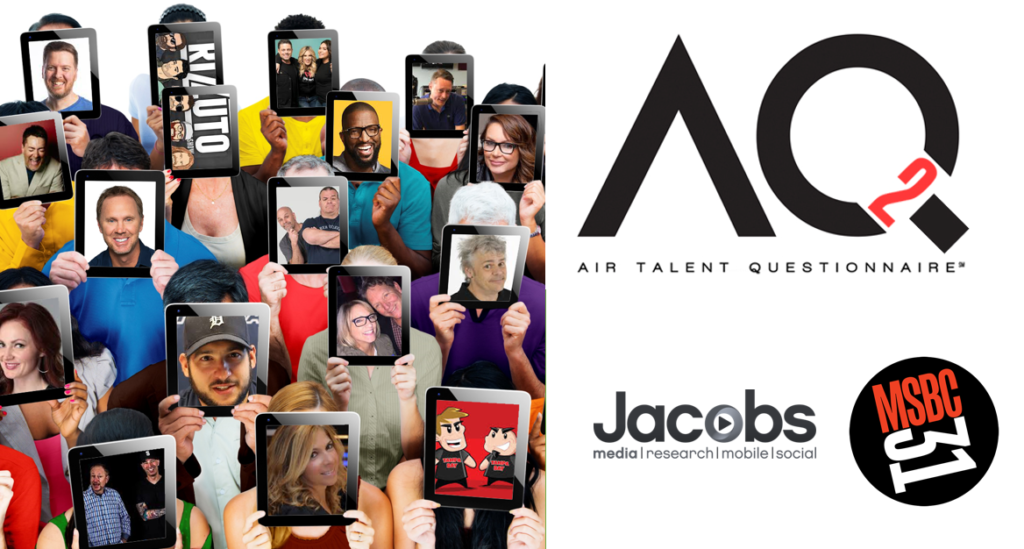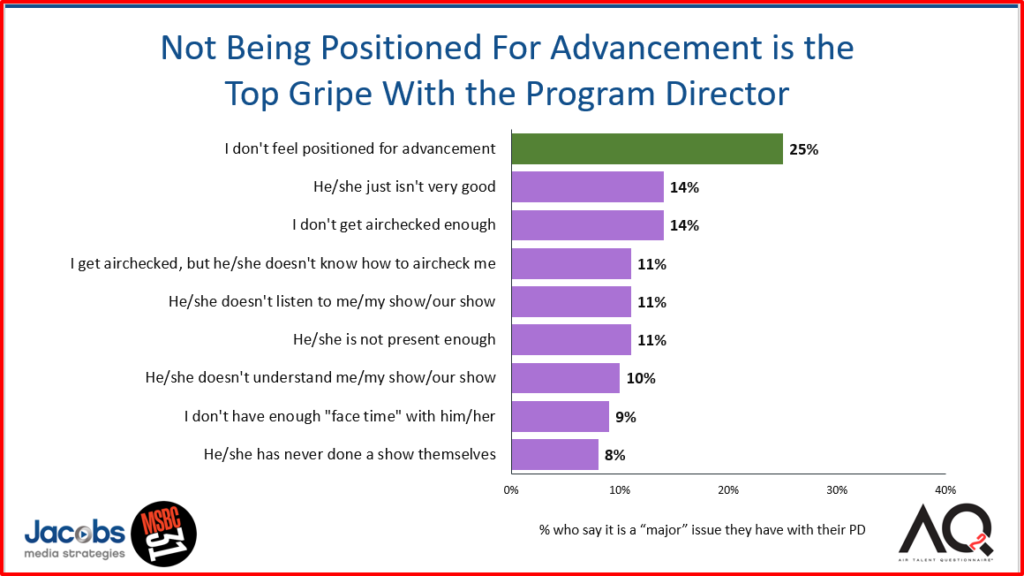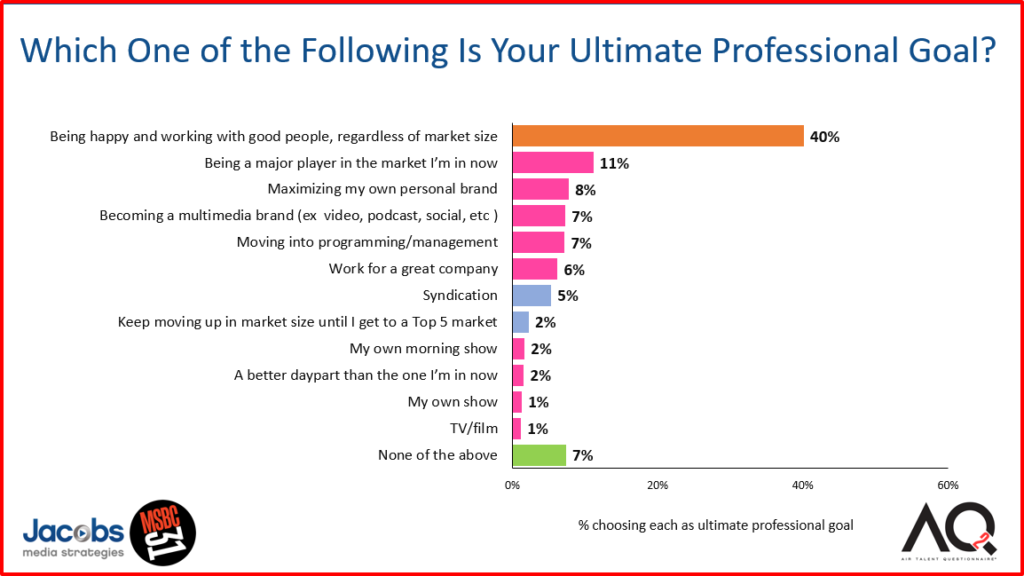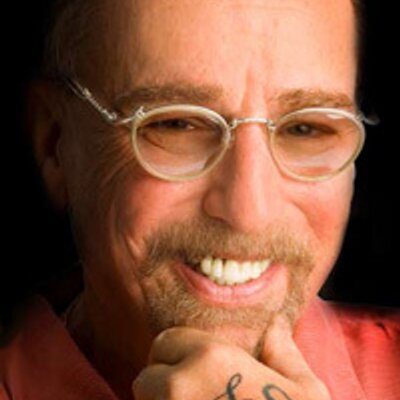
Later this week, it’s the 31st Morning Show Boot Camp in Chicago, Don Anthony’s annual event geared entirely to radio air personalities. I’ve been a regular attendee of this event, which seems to get better and more substantive with each passing year.
On Thursday morning, I have the honor of opening Boot Camp with the results of our second annual talent-on-talent survey, AQ2. It’s the same format we used last year, and it worked well – inviting every commercial radio on-air talent in America to participate. (We’re hoping to do ones for public radio and Canada one day.) Last year, our debut AQ research study served as a tone-setter for other Boot Camp sessions.

My hope is that this year’s event will be similarly impacted by this unique research study among 1,000 willing U.S. DJs, personalities, and hosts. And we have a different wrinkle this year. After I present the top-line findings, I’ll be joined by three industry pros – Angela Perelli, Steve Reynolds, and Greg Strassell – who will share their observations about the research and its implications on talent and how they coach.
I’ve been poring over the AQ2 data the past couple weeks, looking for insights. One that jumped off the spreadsheet at me involves the goals of air talent.
Full disclosure: Before I founded Jacobs Media, one of my least favorite job interview questions was this one:
“Where do you want to be in 5 years?”
While I admire those who have well-defined aspirations, often tied to age milestones (“By the time I’m 40…”), I have also come to realize that plans are important to make and goals are important to set. But the fact is, life often deals us surprising curve balls.
That said, we can learn a great deal about our most important asset – our talent – by gaining a better understanding of what they they really want to do with their careers.
First, we asked our air personalities about the biggest gripe they have with their PDs. And the top complaint – by far – is that the pathway toward advancement with the station or the company is unclear or missing altogether:

Fair enough.
But then there’s the issue of big goals. And it turns out, most personalities have given the matter a lot of thought. And in the process, we gained important insights about the old quandary about how they define success. Interestingly, the trappings of big cities, fame, and fortune are secondary to the desire for happiness, and working with great people, market size aside. And it wasn’t even close:

As you can see on the list above, a distant second most identified driver is achieving success in the market they’re in now; again the metro itself seems less relevant than the situation itself.
Only 5% mention syndication as a professional goal. And look way down the list – the desire to be on the air in New York, LA, Chicago, and other major markets is mentioned by only 2%. Just a decade or so ago, upward mobility to a mega city would have been a top goal.
But things have changed – and so has radio. Many talented, well-connected personalities in medium markets have enjoyed great satisfaction as well as financial rewards by staying put and building their reputations locally.
Perhaps the poster boy for these attributes is Brother Wease, the iconic voice of radio in Rochester, New York. I met Wease many years ago during his WCMF heyday. He was at the top of his game during those years, but watched many other DJs and teams branch out into syndication. And it frustrated him. Like many radio stars, Wease had a great deal of confidence in his ability, and couldn’t fathom why less talented jocks (in his opinion) were reaping more success by having their shows aired in multiple markets.
And yet when I watched Wease on the job – I saw him work events like the Rochester Auto Show as well as a bar night appearance while consulting the station – there was no question that he and his beloved  Rochester were inseparable. In fact, I’m hard-pressed to think of another radio talent more identified with a city than Brother Wease.
Rochester were inseparable. In fact, I’m hard-pressed to think of another radio talent more identified with a city than Brother Wease.
He’s the guy who everyone in town knows, and the more he talked “Rochester-ese,” the better it got. I remembered thinking while listening to his show that I often had no idea what or who he was talking about. And that was a good thing – after all, I was not a Rochesterian.
I enjoyed some great conversations with Wease about radio and CMF, as well as sharing a few meals with him along the way. A number of years ago, he and CMF parted ways, and it was a bit like Derek Jeter leaving the Yankees. Our company has been blessed to continue our relationship with CMF, a station that has continued to survive and thrive despite the departure of their long-time morning guy.
Wease is one of those true radio characters – the kind that simply don’t exist anymore. After returning from service in Vietnam, Wease was the all-night guy who eventually moved over to mornings at CMF in the 80s when Stan Main programmed the station. And he set ratings records in the process.
He’s the real deal – an enthusiast of motorcycles, rock n’ roll, cigars, and tattoos. Wease has overcome cancer and other life setbacks. And along the way, he’s raised hefty sums of cash for good causes – including “Kicking Cancer’s Ass.”
At Morning Show Boot Camp 31, Brother Wease will receive the coveted Kidd Kraddick Award, and it’s hard to think of a more deserving recipient. Younger talent at MSBC can learn a lot from Wease – about serving a community, being yourself, dealing with hardship, and just staying with it.
Mazel tov, Alan.
And congrats to the 2019 inductees in the National Radio Hall of Fame: Sean “Hollywood” Hamilton, Harry Harrison, Kevin & Bean, Joe Madison, Jim Rome, Ryan Seacrest, and Dr. Ruth Westheimer.
In addition to the AQ2 presentation, I’ll be interviewing Beasley Media Group CEO Caroline Beasley in a one-on-one session called “A View From The Top.”
- Can Radio Afford To Miss The Short Videos Boat? - April 22, 2025
- Media And Technology In 2025: Believe It Or Not! - April 18, 2025
- In Radio, You Just Never Know - April 17, 2025




You really should highlight small markets with a story like this. Nobody gives us any credit, and the jocks who stay in these markets are loved beyond description.
I know that. And you see it all over our AQ study. Thanks, Tammie.
Enjoy your thoughts.
Thanks!
Great piece Fred. I’m intrigued by the “Not positioned for advancement” from the PD in your survey. Maybe next year, there could be a panel discussion for programmers on “how to advance to the GM chair” with people from the product and marketing side who “made the leap” to GM. I’ve been searching for GM talent for one of our markets and would love to entertain a programmer for the position except not one has raised their hand.
Michael, that’s a sad commentary on the talent pool. Thanks for reading the blog and taking the time to comment.
It’s sad, but also our fault as leaders. In the NFL, there are seminars for assistants to become head coaches put on by the league and other interest groups.
In radio, we don’t do that. Some companies or groups work at it. MWF is always looking for who we can promote internally and we just did that this week in Springfield, IL where an AE rose to sales manager.
Maybe it’s time as an industry that we look at how we grow our own instead of letting 1-2 people at the top of an org chart in a company decide who grows and who doesn’t.
Perhaps we need to host the seminars like the NFL where PDs can learn strategies for growth into bigger roles – what behaviors individuals need to display and objectives that need to be accomplished in order to advance.
If your slide about PD advancement isn’t a warning to us about our future, then we’ve got our heads in the sand.
I appreciate that. I think most radio veterans will tell you the path to advancement is often gnarly and disorganized. In so many situations, the best seller was promoted to general manager and then eventually to GM. Sure, that works sometimes, but proper training is in short supply. As for PDs who desire to go the GM route, I’ve been blessed work with several of them. Chuck du Coty, John Gehron, Tom Bender, and a handful of others were exceptionally strong managers. But few and far between.
This is a great story Fred & so true of personalities in markets like Rochester, Pittsburgh, Cleveland & my beloved St. Louis with John Ulett, Mark Klose, Smash, Guy Favazza & relatively newer personalities like Scott Rizzuto who has been #1 in St. Louis for years now. ..and there are several more on the rise.
Was thinking of St. Louis when I wrote the blog post. Thanks for the kind words & your role in growing so much of that talent in an environment where they could thrive.